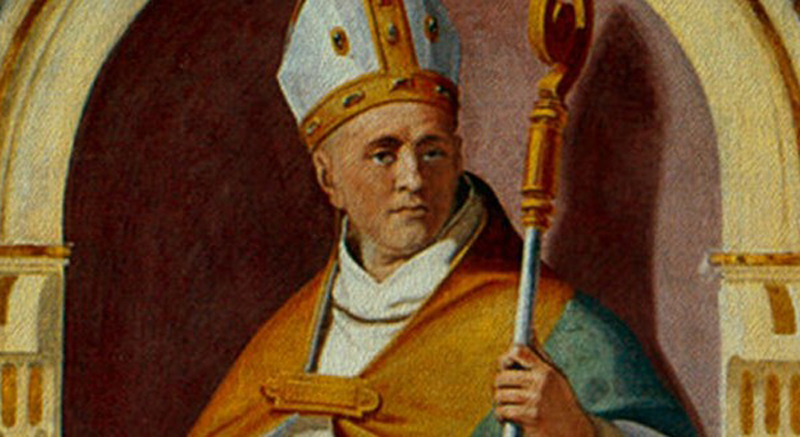(1053-1132)
Hugh was born at Châteauneuf-sur-Isère, France. Even at a young age he showed piety and theological facility. While still a layman, Hugh was made a canon of Valence.
At the Council of Avignon in 1080, he was elected bishop of Grenoble, though he was not yet ordained. The See of Grenoble had fallen into poor state and Hugh was selected to be its Gregorian renovator. Conducted by a papal legate to Rome, Hugh was ordained by Pope Gregory VII. Upon his return, he immediately set to the task of reforming the abuses in his new diocese. After two years he had succeeded in countering abuse and fostering and tried to resign his bishopric so he could enter the Benedictine monastery at Cluny. However, the Pope ordered him to continue his episcopal work.
For the rest of the 11th century his episcopate was marked by strife with Count Guigues III of Albon over the possession of ecclesiastic lands in the Grésivaudan, a valley in the French Alps. Hugh alleged that the count had usurped the lands from the bishopric of Grenoble with the help of Bishop Mallen of Grenoble.
An accord was reached between Hugh and Count Guigues in 1099. The count agreed to cede the disputed territories while Hugh admitted to the count’s temporal authority within the vicinity of Grenoble.
Hugh was instrumental in the foundation of the Carthusian Order. After seeing them under a banner of seven stars in a dream Hugh received Bruno of Cologne, perhaps his own teacher, and six of his companions in 1084. Hugh installed the seven in a snowy and rocky Alpine location called Chartreuse. They founded a monastery and devoted their lives to prayer and study.
Hugh often visited there and was reported to have adopted much of their way of life. Hugh also founded the nearby Monastère de Chalais, which grew into an independent order.
Hugh was canonized on April 22, 1134 by Pope Innocent II, only two years after his death. His feast day is April 1 in the Catholic Church. During the French Wars of Religion (between Catholics and Protestants inspired by John Calvin, called “Huguenots”), the Huguenots burned his body.
Adapted by A.J. Valentini from: Online, C. (n.d.). St. Hugh of Grenoble – Saints & Angels. Catholic Online. Retrieved March 23, 2021, from https://www.catholic.org/saints/saint.php?saint_id=3809
